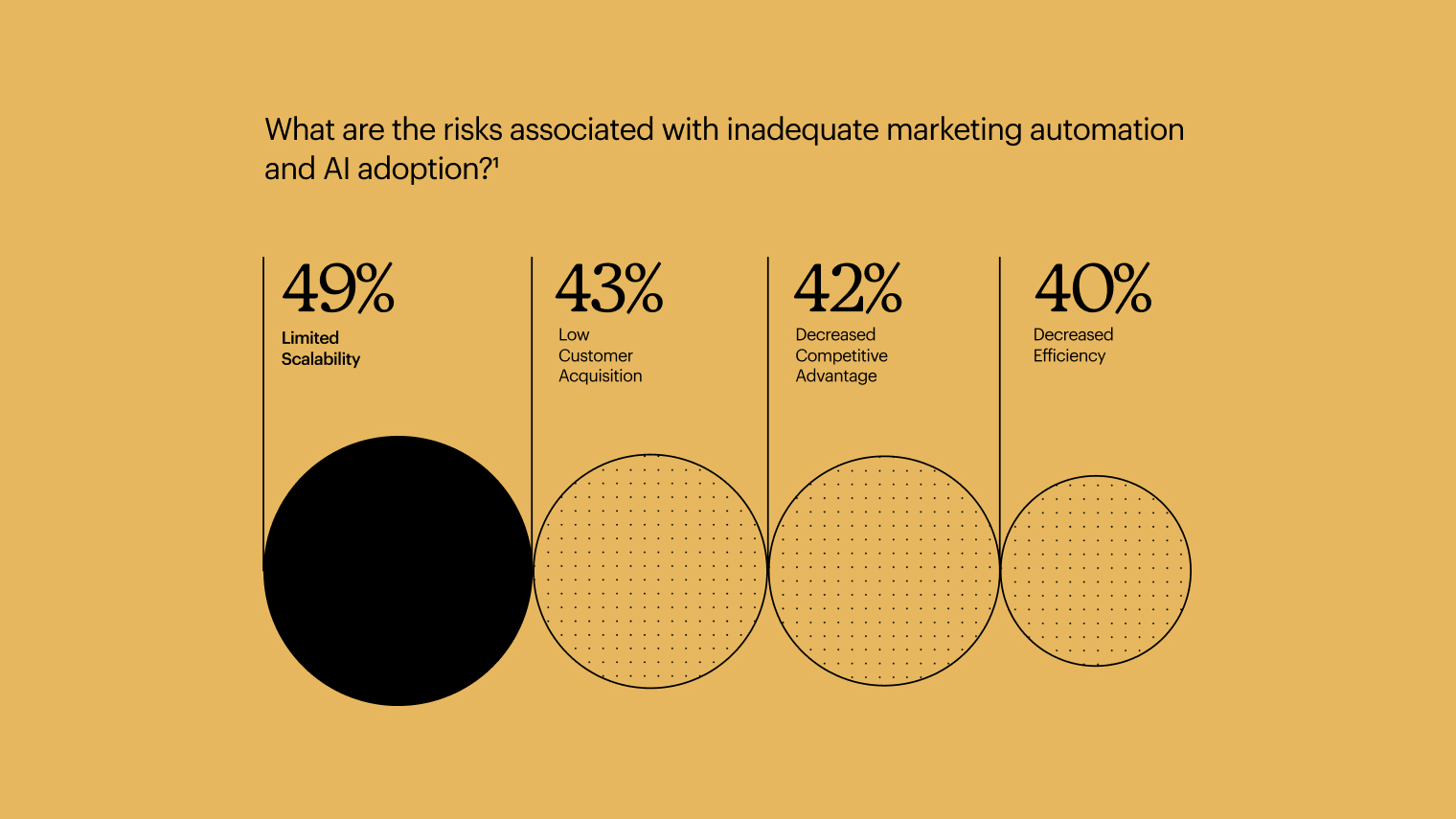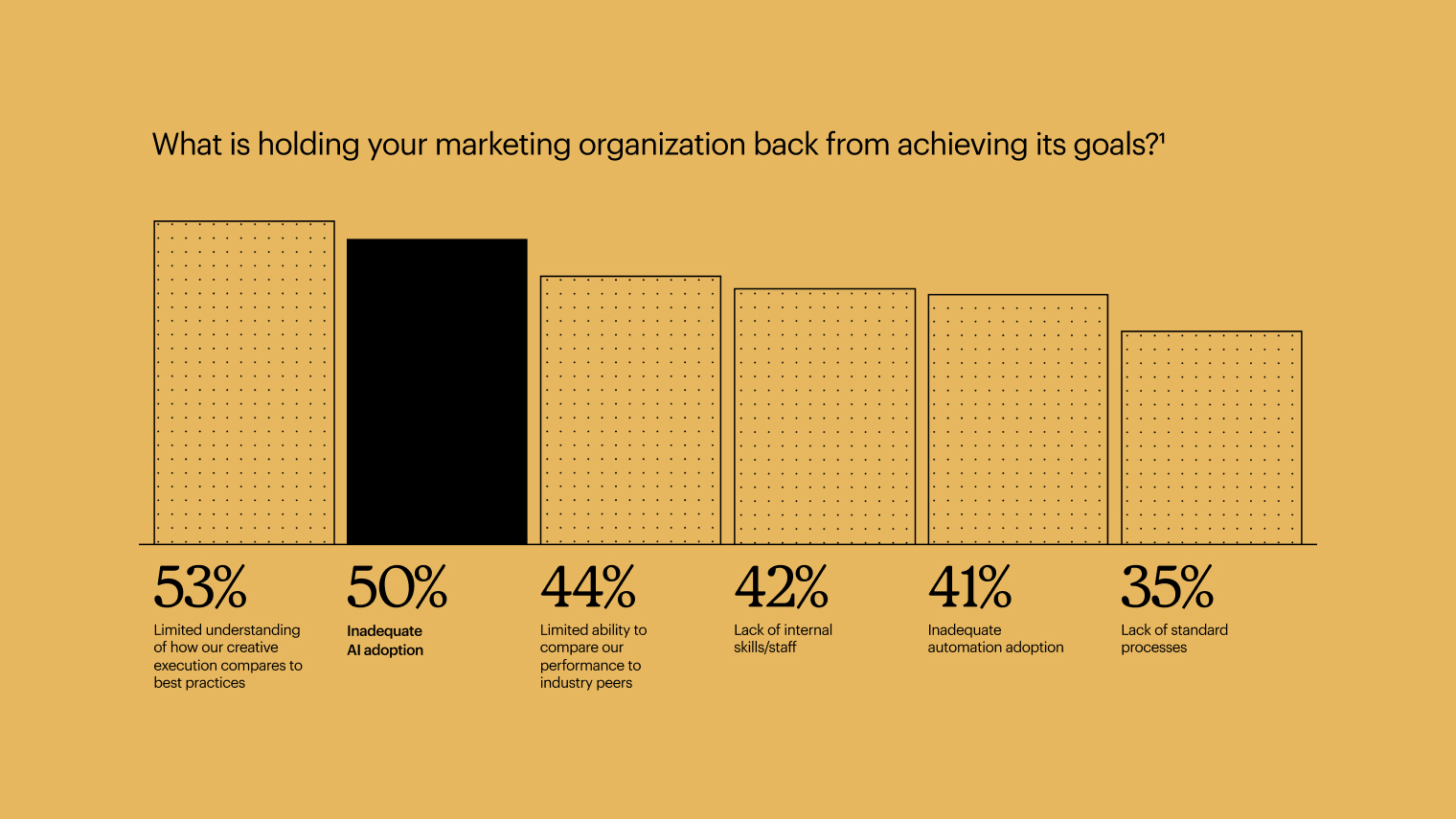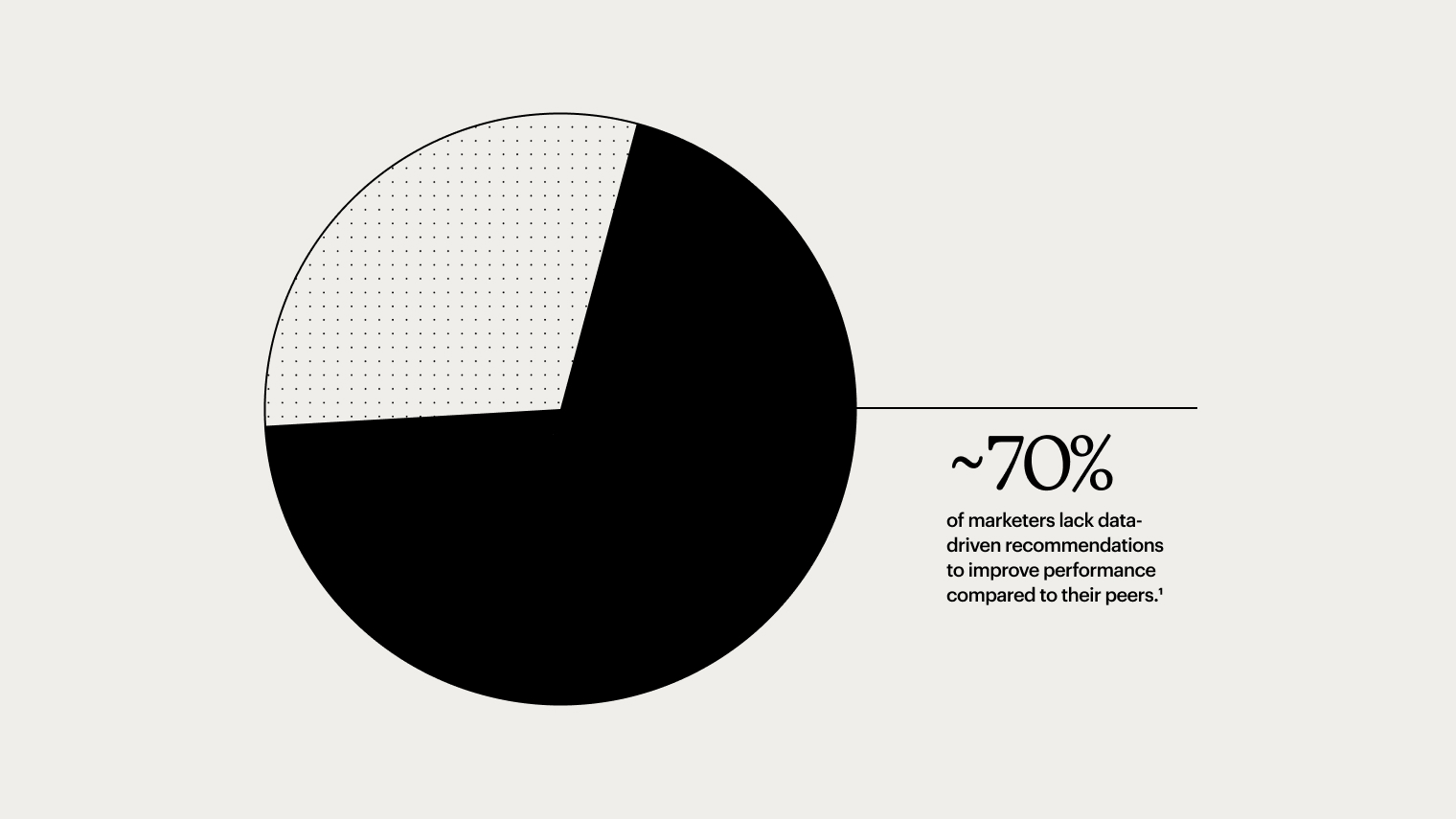ATLANTA, June 13, 2023 – Today, Intuit Mailchimp (Nasdaq: INTU), the global leader in email marketing and automation*, released a report titled "The Future of AI Marketing Isn’t Added On—It’s Built In,” which explores marketers’ perspectives on AI and automation across the globe and use cases for how artificial intelligence (AI) and automation can be adopted for marketers. A study conducted by Forrester Consulting on behalf of Mailchimp underscores several major issues that today’s small and midsize businesses (SMBs) face when it comes to maturing their marketing practices, like creating new content on a regular basis and having the right insights to help them deliver that content to the right audience at the right time to drive the desired behavior**. Luckily, marketers today have access to marketing toolkits that are integrated with advanced AI and machine learning (ML) technologies. 88% of marketers believe their marketing organization must increase use of automation and AI to meet customer expectations and stay competitive.
The survey, collected in March 2023 from more than 300 SMB marketers in North America, Australia, and the UK, tells us that marketers are struggling to stay competitive, but they are also eager and excited to incorporate advanced technology solutions into their marketing strategies. Intuit Mailchimp used the study’s research findings to explore how the power of machine learning can be combined with the content generation power of generative AI to solve some of the most common challenges facing marketers today and help them stay competitive.
“Some of the most frequent and important feedback we hear from marketers and SMBs about content creation is that they don’t have the time, data, expertise or tools necessary to create great tailored content, not to mention the time it takes to analyze it,” said John Humphrey, Head of Data Platform Product at Intuit Mailchimp. “So at Mailchimp, we think a lot about ‘personalization at scale,’ or breaking down why a campaign performs the way it did with detailed insights and suggestions for how to improve those campaigns and who to share them with.”
The Data Tells a Story

Marketing is one industry that is rapidly evolving and will continue to do so as customer needs change and technology advances. This report explores what this could mean for marketers, how marketers feel about advancements in technology, and how these technologies may be used to address marketers' needs in the future. We learned that small and mid-sized company marketers are facing a multitude of issues:
- On average, marketers use 5 different platforms to plan, execute, and analyze their marketing campaigns
- 44% of marketers say the limited ability to compare their performance to peers is holding them back from achieving their goals
- 49% see limited scalability as the most significant risk associated with inadequate marketing automation and AI adoption
But we also learned that they are eager for solutions:
- 67% of respondents believe that strategically increasing the adoption of marketing automation is essential for acquiring and retaining customers
- 70% of marketers say insights on campaign performance against business targets are valuable to their marketing organization in attaining its top priorities
- 73% of marketers said insights around omnichannel customer engagement insights (i.e., 360-degree view of customer's interactions with the business for better personalization and engagement) are valuable to their marketing organization achieving its top priorities
Helping Marketers Meet Their Needs

Machine learning has vastly improved SMB marketers' ability to tailor content and better connect with their audiences, but it has not addressed the need for scalable solutions to generate the content required to support personalized experiences. That's where industry peers anticipate AI stepping in, a supportive tool that helps marketers save time and take their marketing further without relinquishing control. In fact, 50% of marketers believe inadequate AI adoption is holding them back from achieving their goals.
“My advice to marketers is to take time to understand machine learning and understand what it unlocks in terms of the potential to differentiate groups of customers at scale to stay ahead of the curve,” said Maya Wilson, Director of Data Science at Intuit Mailchimp. “AI-powered tools are starting to understand content the way a marketer understands it, and can provide recommendations based on that understanding. This can be used for design, segmentation strategy and content optimization.”

Automations powered by machine learning and AI can be great solutions for content creation and audience generation, but there are other challenges marketers face. For example, 88% of small and medium business marketers agree that customer expectations are at an all-time high, but roughly 70% of respondents lack data-driven recommendations to improve performance compared to peers. Data is powerful, and in partnership with AI/ML tools, marketers can gain insights and recommendations that could significantly improve their ability to understand and connect with their customers at scale, segment them, or even benchmark against their competitors.
“We were able to use customer data accessed via our Shopify integration to identify and segment customers based on purchase history and how they interact on our website, allowing us to retarget our customers based on previous purchases with suggestions for a similar coffee if they liked the one they tried,” said Alan Fischer from PERC Coffee, an Intuit Mailchimp customer. “Attrition is by far the highest between the first and second purchases. If someone hasn't made a second purchase in 21 days, they’re probably out of coffee, so we’re prodding them and offering discount codes.”
So What?
The fact is that many marketers at businesses small and large have already found new and exciting ways to integrate AI and automations into their daily toolkits. We think that marketers will be able to use their time in new ways as AI technology allows them to create and launch more campaigns and products at a higher quality and frequency than they were capable of before. Marketers may find that after integrating trusted automations, they suddenly have the time to focus on the most pressing issues: what their customer pain points are that they’re not yet addressing or what products and offers could address those unmet customer needs.
*Based on competitor brands' publicly available data on worldwide numbers of customers in 2021/2022. **Based on 2022 data for the following products: Product recommendations, Send Time Optimization, A/B testing, CLV segmentation, Likelihood to Purchase Segmentation, and PBJ.
**To view the report, click here. All statistics cited are from a commissioned survey by Forrester Consulting on behalf of Intuit Mailchimp (March 2023) of 313 small business (companies with 10-999 employees and revenue between $5M to $999.99M USD) marketing automation strategy decision makers in North America, Australia, and the UK.

